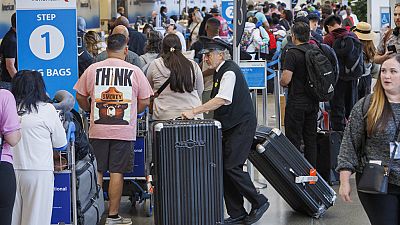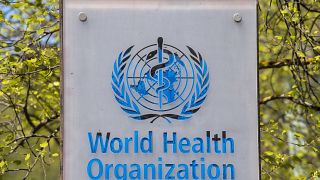travel warning
European health authorities have advised EU countries to issue travel warnings for regions affected by mpox after the outbreak was declared a global emergency by the World Health Organization (WHO).
The European Centre for Disease Prevention and Control (ECDC) warned on Friday that Europe is likely to see more imported cases due to the virus’s spread in several African nations. However, the ECDC noted that the risk of ongoing transmission within Europe remains low, provided that imported cases are quickly identified and controlled.
This update follows the detection of a new mpox variant in Sweden, marking the first case of this strain outside Africa. Bruno Ciancio, head of surveillance at the ECDC, expressed concern over the worsening situation in Africa, particularly in the Democratic Republic of the Congo (DRC) and neighboring countries, where the number of cases is likely underestimated.
To prevent further spread in Europe, the ECDC emphasized the need for rapid case identification and containment. The agency has also recommended that EU and European Economic Area (EEA) countries issue travel advice for those visiting areas affected by mpox.
Since last year, mpox has been spreading in the DRC and other African countries, causing over 500 deaths, mostly in the DRC. The WHO's recent declaration of the outbreak as a global health emergency calls for coordinated international efforts to tackle the crisis.
The ECDC highlighted the higher risk for EU/EEA travelers who have close contact with affected communities in mpox-impacted areas. They also noted a moderate risk for close contacts of possible or confirmed imported cases in Europe.
Two subtypes of the mpox virus exist: Clade I, which is more severe and endemic to central Africa, and Clade II, responsible for the 2022 global outbreak. Several African countries are currently dealing with an outbreak of Clade I and a new strain, Clade Ib.
Sweden recently reported the first European case of Clade Ib, leading the ECDC to raise the risk level for EU/EEA travelers and the general population. While the impact in Europe is expected to be low, the ECDC recommends high levels of preparedness, including effective surveillance, testing, and contact tracing.
Travelers to mpox-affected areas are advised to consider vaccination, and European clinicians are urged to stay alert for potential cases, even though the disease is not endemic to Europe. Ciancio emphasized that while the risk should be taken seriously, it should not be overestimated, noting the availability of an effective and safe vaccine.












Go to video
2024: Deadliest year ever for aid workers amid global conflicts - UN says
01:40
Kenya cancels airport and energy deals with Adani group after the U.S. indicts the tycoon
Go to video
Fugitive Zambian MP Emmanuel Jay Banda arrested in Zimbabwe after three-month Manhunt
Go to video
Spain to offer residency and work permits to undocumented migrants
Go to video
Archbishop of Canterbury will end official duties in early January amid sex abuse scandal
Go to video
Congo opposition leaders call for protests against president's plan to change constitution